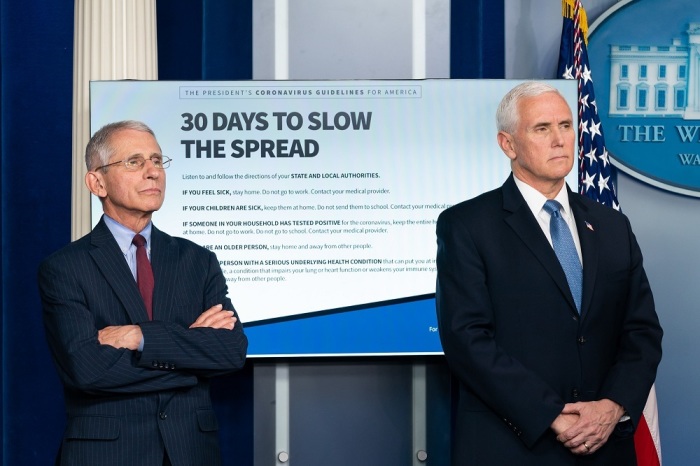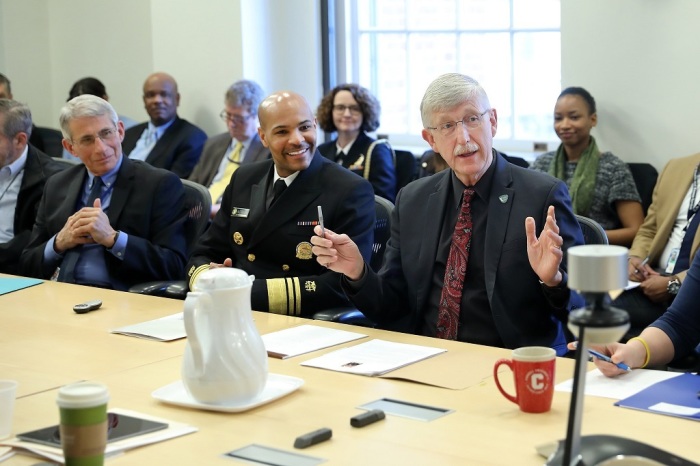2,700 evangelicals warn against politicizing coronavirus, urge Christians to take vaccine

A coalition of more than 2,700 high-profile evangelicals spanning the fields of science and religion have signed onto a statement billed “A Christian Statement on Science for Pandemic Times,” which warns against the politicization of the new coronavirus and urges Christians to take appropriate action against it, including taking a vaccine when it’s ready.
“We are deeply concerned about the polarization and politicization of science in the public square when so many lives are at stake. The word ‘science’ has become a weapon in the culture wars. Scientists are vilified and their findings ignored, while conspiracy theories go viral. Sadly, Christians seem just as susceptible to these trends. Thoughtful Christians may disagree on public policy in response to the coronavirus, but none of us should ignore clear scientific evidence,” the statement published online by the nonprofit organization BioLogos says.
"We call on all Christians to follow the advice of public health experts and support scientists doing crucial biomedical research on COVID-19."
BioLogos was founded by U.S. National Institutes of Health Director Francis Collins, a devout Christian geneticist, and his wife, to foster discussions about the harmony between science and biblical faith. Collins was honored earlier this year with the Templeton Prize, a financial award of $1.3 million for his storied career using science to advocate for the “integration of faith and reason.”
Some of the influential evangelicals who have already signed the statement include: Bishop Claude Alexander, senior pastor, The Park Church, Charlotte, North Carolina; National Association of Evangelicals President Walter Kim; William Phillips, a distinguished professor of physics at the University of Maryland who was a co-recipient of the Nobel Prize of Physics "for development of methods to cool and trap atoms with laser light" in 1997; and Samuel Rodriguez, president of the National Hispanic Christian Leadership Conference.
The signers affirm that they "uphold the authority of God’s Word and see science as a tool to understand God’s world."
The statement comes in the wake of the fragmented response in the Christian community to the coronavirus which has fed skepticism about how it has been handled and challenged advice from public health officials on issues such as the wearing of masks to stem the spread of the disease.

A vocal minority of churches also spoke out against calls from federal and local government authorities to close their churches amid the new coronavirus pandemic, risking fines and arrests. As recently as Sunday, North Carolina Bishop Patrick Wooden Sr. of the conservative Upper Room Church of God in Christ in Raleigh, slammed Dr. Anthony S. Fauci, who is director of the National Institute of Allergy and Infectious Diseases and member of the White House Coronavirus Task Force, as a “backslidden Catholic and self-professed humanist” who is being used as a political tool by the left.
“Humanists do not believe in prayer, humanists do not believe that God intervenes, humanists do not believe that we need help from the Lord at all. That may be one of the reasons he could easily recommend that churches be closed, but he fumbled and waffled when they suggested perhaps the protests should be curtailed because they spread the virus,” he asserted.
The statement acknowledges that while Christians have a valid reason to be skeptical of the scientific process, it would be unwise to dismiss their research.
“It is appropriate for Christians to be skeptical of claims made by scientists who speak outside their area of expertise. We firmly reject claims that science has somehow shown God does not exist or faith is mere superstition. Such claims go beyond what science is capable of investigating. We lament the times when science and medicine have been misused to perpetrate atrocities like the racist Tuskegee experiments. But Christians should listen to scientists and doctors when they speak in their area of expertise, especially when millions of lives are at stake,” the statement warns.
It also explains that while some of the scientific guidance on the virus may seem confusing at times, it’s simply the nature of the process of trying to fight a virus they are still learning about each day.
“Experts have been communicating their knowledge in real time as the pandemic progresses, which has led to some confusion. In the early days, they advised the public against masks when supplies were needed for healthcare workers, but later they changed their message in response to more data. A change in expert advice is not a sign of weakness or unreliability, but of good scientific practice and honesty," it notes.
“On the biggest points, scientific predictions have been proven right: scientists said stay-home orders would reduce cases, and thankfully those measures worked. Scientists predicted that ending quarantine too soon would increase cases, and that has been the case.
“While any individual scientist may be biased, the community actively critiques each other’s work to reduce bias and errors until together they develop a consensus on what the data are saying. It’s not a perfect process and one can always find dissenters, but scientists working together are far more accurate than one person’s theory on YouTube. Scientists are trained to communicate where the consensus is uncertain and to not overstate conclusions. They may speak in sound bites in an interview, but if you listen a bit longer you will hear the caveats. So when Dr. Fauci, the nation’s leading infectious disease expert, tells us what scientists have learned about this infectious disease, he should be listened to.”
On the reopening of churches, signers of the statement agree that "Christians need to balance God’s call to meet together with God’s call to protect the vulnerable among us."
"Our faith calls us to sacrifice ourselves for others and accept temporary limitations on our freedoms because we have a permanent and complete freedom in Christ (Hebrews 10:34). Our faith helps us be humble and patient when discussing contentious issues (Ephesians 4:2-3). It is our faith, not science, that overcomes fear and brings hope."
The statement acknowledges that “the economic losses and social hardships of the pandemic are painful, and thoughtful Christians will disagree on how to balance those needs with health needs.”
Nevertheless, it urges Christians to wear masks, get vaccinated, correct misinformation, work for justice and pray.
"Mask rules are not experts taking away our freedom, but an opportunity to follow Jesus’ command to love our neighbors as ourselves," it says. "Christians are called to love the truth; we should not be swayed by falsehoods.
“Get vaccinated against COVID-19 when a safe and effective vaccine is available and as directed by a physician. A large fraction of the population needs to be vaccinated to develop the ‘herd immunity’ which protects the immuno-compromised and others who cannot be vaccinated. Vaccination is a provision from God that will prevent disease not only for ourselves but for the most vulnerable among us (Matthew 25:31-36).”





























